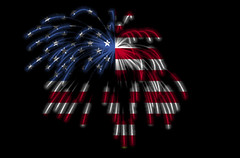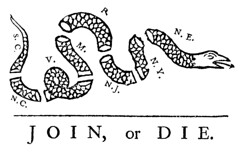| 13704855097 | The French and Indian War (7 years war) | 1754-1763 War between French and British in American colonies. Colonists moving into French land in Ohio River Valley Ended with Treaty of Paris 1963 |  | 0 |
| 13705077726 | French Colonists | Samuel de Champlain founded Quebec 1608. Motives- fur trading, catholic jesuit missionaries | 1 | |
| 13705077727 | Albany Plan | 7yrs war. British coordinating war effort and colonian defense. Wanted to get iroquois to join them. Albany Plan of Union by Benjamin Franklin 1754 to unite the 13 colonies for trade, military, and other purposes; turned down by the colonies and the Crown | 2 | |
| 13704855098 | Proclamation Act of 1763 | Line drawn by British Parliament, colonists not allowed to settle past Appalachian mountains |  | 3 |
| 13704855100 | Common Sense | 1776 pamphlet written by Thomas Paine to get people to want independence |  | 4 |
| 13705077728 | Navigation Acts | Control colonial trade. Violators tried in Vice-Admirality Courts | 5 | |
| 13705077729 | Sons of Liberty | Secret society formed to oppose British policies. Organized boycotts. Samuel Adams, Paul Revere Daughters of liberty organised "spinning bees" | 6 | |
| 13705165884 | Commitees of Correspondence | 1772 by Samuel Adams. Keep communication and help towns and colonies share information about resisting British laws. Colonial unity. | 7 | |
| 13705165885 | Boston Tea Party (1773) | British passed Coercive Acts 1774 "Intolerable Acts" Colonists responded with Suffolk Resolves- rejected act and resorted to boycotting British goods | 8 | |
| 13705165886 | 1st Continental Congress | 1774. Wanted to repair relationship with England | 9 | |
| 13705165887 | 2nd Continental Congress | 1775 Sent the "Olive Branch Petition". Created a continental army with George Washington as the leader. Agreed to write a formal letter declaring their independence from England. | 10 | |
| 13704855101 | The Declaration Of Independence | 1776 document written by colonist elites to British King and Parliament stating independence and what all was wrong with British rule and the King |  | 11 |
| 13704855102 | Battle of Saratoga | Revolutionary war. British and Americans in country side, Americans win by a lot and show they have a chance |  | 12 |
| 13704855103 | French American Alliance | Formed after battle of Saratoga when Americans proved to French they can win and French are allies because they want to damage an age old enemy |  | 13 |
| 13704855104 | Treaty of Paris 1783 | 1783 ended the American Revolutionary War. Boundary extended to Mississippi river. Franklin, Adams, John Jay |  | 14 |
| 13704855105 | Enlightenment | A movement in the 18th century that advocated the use of reason in the reappraisal of accepted ideas and social institutions. |  | 15 |
| 13704855106 | John Locke | English philosopher who advocated the idea of a "social contract" in which government powers are derived from the consent of the governed and in which the government serves the people; also said people have natural rights to life, liberty and property. |  | 16 |
| 13704855107 | George Whitefield | Credited with starting the Great Awakening, also a leader of the "New Lights." |  | 17 |
| 13704855108 | Great Awakening | a religious movement that became widespread in the American colonies in the 1730s and 1740s |  | 18 |
| 13704855109 | Ben Franklin | A delegate from Pennsylvania and proposed the "Albany Plan of the Union" as a way to strengthen colonies. |  | 19 |
| 13704855111 | Sugar Act of 1764 | An act that raised tax revenue in the colonies for the crown. It also increased the duty on foreign sugar imported from the West Indies. |  | 20 |
| 13704855112 | Virtual Representation | The political theory that a class of persons is represented in a lawmaking body without direct vote. |  | 21 |
| 13704855114 | Townshend Acts | A tax that the British Parliament passed in 1767 that was placed on leads, glass, paint and tea |  | 22 |
| 13704855115 | Popular Sovereignty | A belief that ultimate power resides in the people. |  | 23 |
| 13704855116 | Thomas Jefferson | Wrote the Declaration of Independence |  | 24 |
| 13704855119 | Patriots | (also known as Revolutionaries, Continentals, Rebels, or American Whigs) were those colonists of the Thirteen Colonies who rejected British rule during the American Revolution and declared the United States of America as an independent nation in July 1776. |  | 25 |
| 13704855120 | Tories/Loyalists | Colonists who favored remaining under British control |  | 26 |
| 13704855121 | Bill of Rights | The first ten amendments to the Constitution |  | 27 |
| 13704855122 | Articles of Confederation | 1st Constitution of the U.S. 1781-1788 (weaknesses-no executive, no judicial, no power to tax, no power to regulate trade) |  | 28 |
| 13704855123 | Shay's Rebellion | 1787. Post-war depression, farmers hard hit. Ex-Revolutionary War soilders demanded lower taxes, end of foreclosures, paper $, and end of imprisonment for debt |  | 29 |
| 13704855124 | Republican Motherhood | The idea that American women had a special responsibility to cultivate "civic virtue" in their children |  | 30 |
| 13704855125 | Northwest Ordinance | 1787, it is considered one of the most significant achievements of the Articles of Confederation. It established a system for setting up governments in the western territories so they could eventually join the Union on an equal footing with the original 13 states |  | 31 |
| 13704855126 | Federalist Papers | A collection of 85 articles written by Alexander Hamilton, John Jay, and James Madison under the name "Publius" to defend the Constitution in detail. |  | 32 |
| 13704855127 | Federalists | Supported a strong central government and ratification of the Constitution |  | 33 |
| 13704855128 | Antifederalists | Weaker national government |  | 34 |
| 13704855129 | Constitutional Convention 1787 | To revise Articles of Confed. Great Compromise- 2 senators per state and House of Representatives based on population 3/5 compromise and end to slave trade in 1808 Create new, stronger centeral govm. |  | 35 |
| 13704855130 | Whiskey Rebellion | In 1794, farmers in Pennsylvania rebelled against Hamilton's excise tax on whiskey, and several federal officers were killed in the riots caused by their attempts to serve arrest warrants on the offenders. In October, 1794, the army, led by Washington, put down the rebellion. The incident showed that the new government under the Constitution could react swiftly and effectively to such a problem, in contrast to the inability of the government under the Articles of Confederation to deal with Shay's Rebellion. |  | 36 |
| 13704855131 | XYZ Affair | A 1797 incident in which French officials demanded a bribe from U.S. diplomats |  | 37 |
| 13704855132 | Bank of the United States (BUS) | Alexander Hamilton economic plan. Jefferson opposed the bank; he thought it was un-constitutional. nevertheless, it was created. This issue brought about the issue of implied powers. It also helped start political parties, this being one of the major issues of the day. |  | 38 |
| 13704855133 | Alien and Sedition Acts | Series of four laws enacted in 1798 to reduce the political power of recent immigrants |  | 39 |
| 13705942097 | French Revolution (1789) | Federalists pro-England, Jeffersonian (Democratic) Republicans pro-French. Wanted extension of our own liberty English immpressment of U.S ships Proclamation of Neutrality 1793 | 40 | |
| 13705942098 | Jeffersonian Republicans | Agrarian vision, south and west, strict interpretation of constitution, state rights | 41 | |
| 13705942099 | Washington's Farewell Address | 1796, warned against the dangers of political parties and foreign alliances. | 42 |
AP US History Period 3 Flashcards
Primary tabs
Need Help?
We hope your visit has been a productive one. If you're having any problems, or would like to give some feedback, we'd love to hear from you.
For general help, questions, and suggestions, try our dedicated support forums.
If you need to contact the Course-Notes.Org web experience team, please use our contact form.
Need Notes?
While we strive to provide the most comprehensive notes for as many high school textbooks as possible, there are certainly going to be some that we miss. Drop us a note and let us know which textbooks you need. Be sure to include which edition of the textbook you are using! If we see enough demand, we'll do whatever we can to get those notes up on the site for you!

